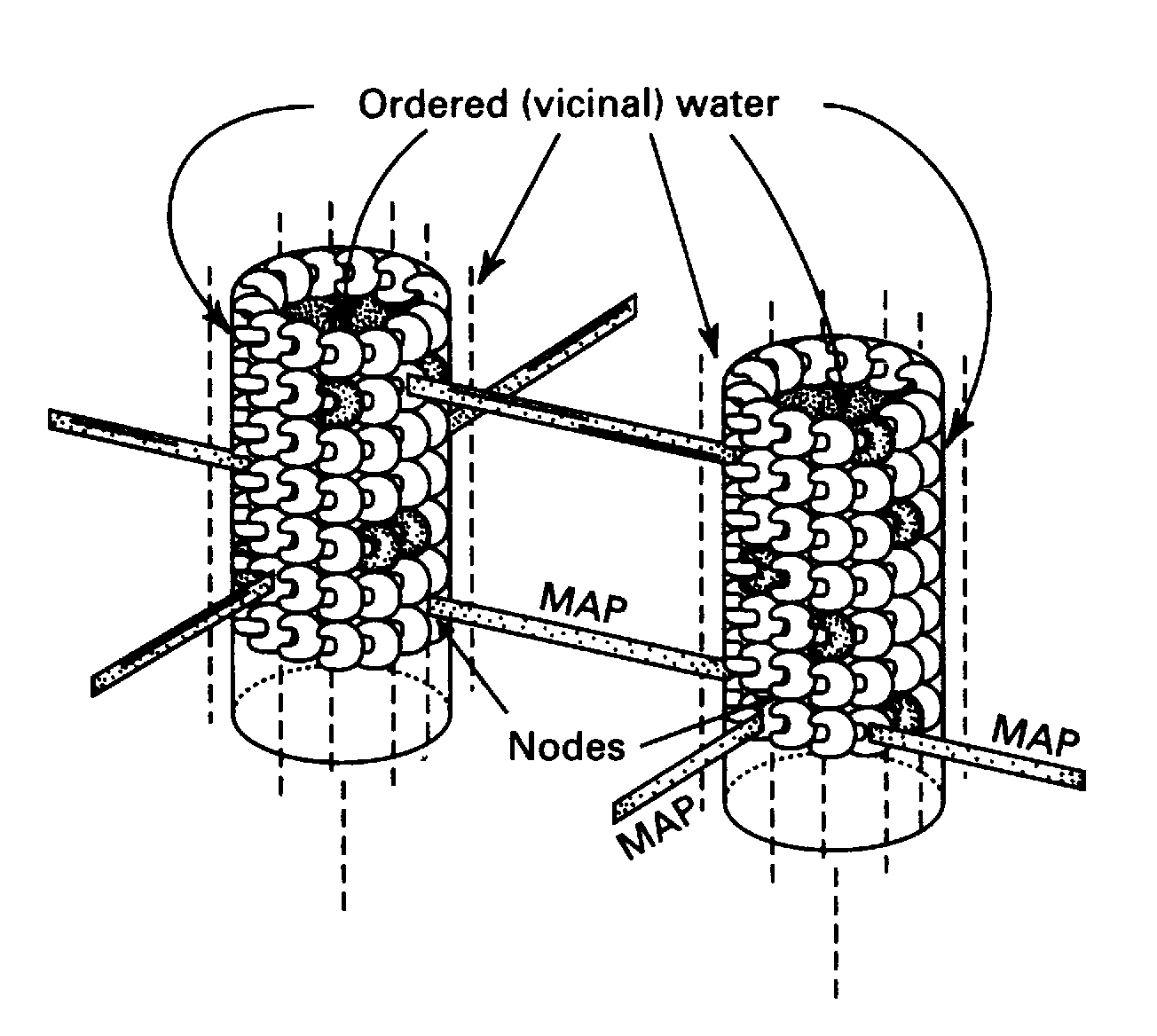How is Free Will Possible?
Classical Newtonian physics describes
a precisely determined, clockwork world
==> predetermination is inconsistent with free will
Modern quantum physics describes
a nondetermined, probabilistic world
==> nondetermined outcomes are consistent with free will,
but a probabilistic (random) world is inconsistent with free will
Some physicists believe that
consciousness and free will
are the result of subtle quantum effects
in the brain!

Roger Penrose believes that systems of
mircotubules
(little tubes made of protein) within (collections of) neurons
might sustain large-scale quantum-coherent brain activity
that constitutes conscious events.
(Diagram from Penrose, Roger, The Large, the Small, and the Human
Mind.)
If so, then
this is another example of the fact that
if any of the three numbers in the
Schrodinger equation ---
Planck's constant: h
the electron's mass: me
the electron's charge: e
--- were even slightly different,
our physical (and mental) world would by profoundly
changed!
index | back | next

